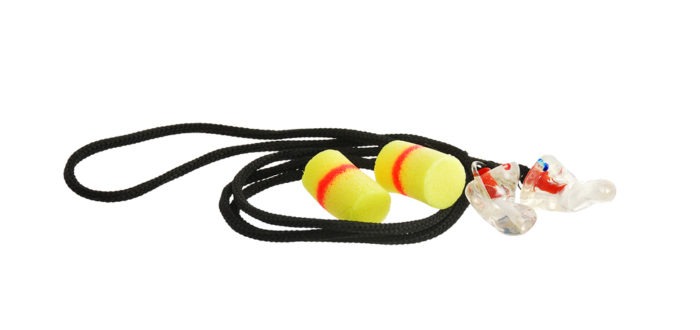Noise induced hearing loss (NIHL) is the second most common form of hearing loss. It is also a preventable form of hearing loss.
Noisy environments are bad news for your ears. This is especially true if you repeatedly expose yourself to these noisy environments. Noise can affect your hearing, your concentration, and have wider implications on your health.
It’s important to note that we’re not only talking about the sudden, very loud noises (like a firecracker). Prolonged exposure to moderate levels of noise can also impact your hearing health.
Understanding how the noise in your environment can affect your hearing is important. Once you have this understanding, you can start considering what level of hearing protection you need.
Many of us don’t even realize that there are multiple levels of hearing protection. But if you stop to think about it – it makes sense! Some of us may work in an environment exposed to continual loud noise – like a train station. Others may only be exposed to dangerous noise levels in certain circumstances – like when using a leaf blower.
Understanding Levels of Noise
We measure sound in decibels (dB). The Centers for Disease Control and Prevention note that noise “above 70 dB over a prolonged period of time may start to damage your hearing. Loud noise above 120 dB can cause immediate harm to your ears.”
So what does that translate into? Here are some common sounds you may be exposed to, and their corresponding noise level:
- 20 dB – The ticking of a watch is generally around 20 dB.
- 30 dB – Whispering is generally around 30 dB.
- 60 dB – Normal conversation averages around 60 dB
- 70 dB – Your dishwasher or washing machine is generally around 70 dB.
- 80 – 85 dB – This is the average volume of city traffic from inside your car. Noises at this level likely annoy you.
- 90 dB – Lawnmowers, weed whackers and hand driers are all around 90 dB. You risk damage to your hearing after a few hours of exposure.
- 100 dB – Construction equipment and power tools are often 100 dB. Exposing your hearing for longer than an hour without protection to these sounds can damage your hearing.
- 105 – 110 dB – This is often the maximum volume level for personal listening devices. Loud entertainment venues also top out around this noise level. You can damage your hearing in under 5 minutes.
- 110 dB – Sirens, construction equipment and leaf blowers can all be very loud. This level of noise can damage your hearing in under 5 minutes.
- 140 dB – A jet engine tops out around 140 dB. Exposure to this level of sound and above without protection can cause immediate damage. It can even cause pain and an ear injury.
What Level of Hearing Protection Do You Need?
Noise Reduction Rate (NRR) measures how effective your hearing protection is. The higher the NRR, the more protection offered.
It is important that you choose hearing protection with an NRR appropriate to your environment.
Another consideration is comfort. You want to make sure that wearing your hearing protection is not uncomfortable. Otherwise, you may not even wear it.
There are generally three choices when it comes to hearing protection. These include:
- Small earplugs that sit inside your ear canal
- Earplugs that sit outside your ear canal
- Ear muffs
When Should You Wear Hearing Protection?
You should ensure that you are wearing hearing protection anytime your hearing could be at risk. A general rule of thumb is that exposure to noises above 85 dB may require protection.
Remember, it’s not just how loud the environment is. It’s also about how long you will be in the environment. If you work in a noisy environment, your employer may be required to provide Personal Protective Equipment (PPE).
Help understand how loud your environment is with a mobile app. Decibel X and Too Noisy Pro are two mobile phone apps that allow you to check volume levels on the go.
Using hearing protection is the best way to protect your hearing. Noise induced hearing loss is preventable – the power is in your hands.
Get Your Hearing Checked at Hearing Services of Delaware
If you suspect that you may have noise induced hearing loss, please book in a hearing assessment with the hearing healthcare professionals at Hearing Services of Delaware today. We are here to help! Contact us today to schedule an appointment with one of our certified hearing care professionals.

